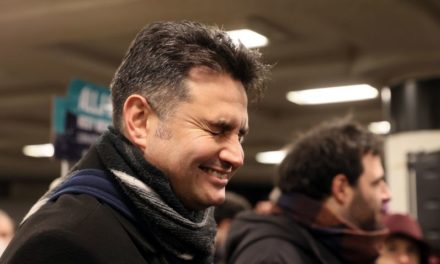There is no chance of understanding each other in the European Union debates on migration, because the historical experience is completely different, so on the issue of migration, the right to decide on their own fate should be given to the member states, said Justice Minister Judit Varga in Budapest.
Judit Varga recalled at the round table discussion held at the launch of the book Migration as a Risk, Prime Minister Viktor Orbán repeatedly said that the positions on migration are so far apart that no compromise is needed, but simply tolerance, patience, mutual respect and understanding.
He pointed out that there can be no question of compromise in the situation where the mainstream EU policy, many Western European politicians and governments see migration as a positive thing, while on the other hand, for example, the Hungarian government sees migration as a must-stop, for European civilization, the continent he describes it as a phenomenon with harmful effects on his future.
We want to stop it, others want to manage it, so they are looking for legal migration routes - said Judit Varga.
He said that the EU attitude, which now dominates the mainstream, does not serve to protect the souvenirs of the member states and nation-states.
If someone considers migration to be welcome and wants to deal with it, it will not provide a solution for those countries which, on the other hand, consider migration pressure to be stopped or want to deal with the problem locally, the minister stated.
Judit Varga stated that, since its establishment in 2017, the Hungary Helps Program has provided 26 billion forints in support of staying in place and rebuilding after war conflicts, so that people can return to their homeland.
The head of the ministry also said that it is no longer about the formation of parallel societies, but about their existence in the affected Western European countries. Judit Varga called it sad that the European indigenous culture and legal system do not respond to this in such a way as to sound the alarm.
Judit Varga emphasized that Hungary supports its political position of rejecting immigration with a mass of legislation. Their basis is that "we don't want to let in illegal immigrants and we don't want an immigrant country."
These laws are being challenged, but the basis for this is that they do not agree with the regulatory purpose - said the minister, adding that these legal disputes will continue until the EU community reaches the point where it leaves the member states to decide for themselves : who they want to live with, who they don't.
Bianka Speidl, the author of the study volume A migration as a risk published by Századvég, said that the strongest counter-argument of the humanitarian narrative is that the sending societies and the people who leave are themselves losers of the migration process.
When we experience aggressiveness, it shows that they are individually and psychologically unable to adapt to the new situation, while at the "community level" we see that they are rebuilding their own reality in Europe. So, basically, they have no connection with the host society, he said. He also noted that people who cannot integrate in Europe are missing from the labor market of the issuing countries.
So the process really only has losers, said Bianka Speidl.
Zoltán Kiszelly , director of the Századvég Center for Political Analysis, said that the study volume is also a well-founded critique of pro-immigration mainstream thinking.
He criticizes the kind of victimology in which a person seeking a better life is presented as a victim. He contrasts this thinking with the concept of risk, he said.
He pointed out that the need for local action is very strongly expressed in the book.
Zoltán Kiszelly said that the volume also shows the extent to which the population, economic power and political influence of the Muslim population is growing in Western Europe.
MTI
Photo: Facebook












